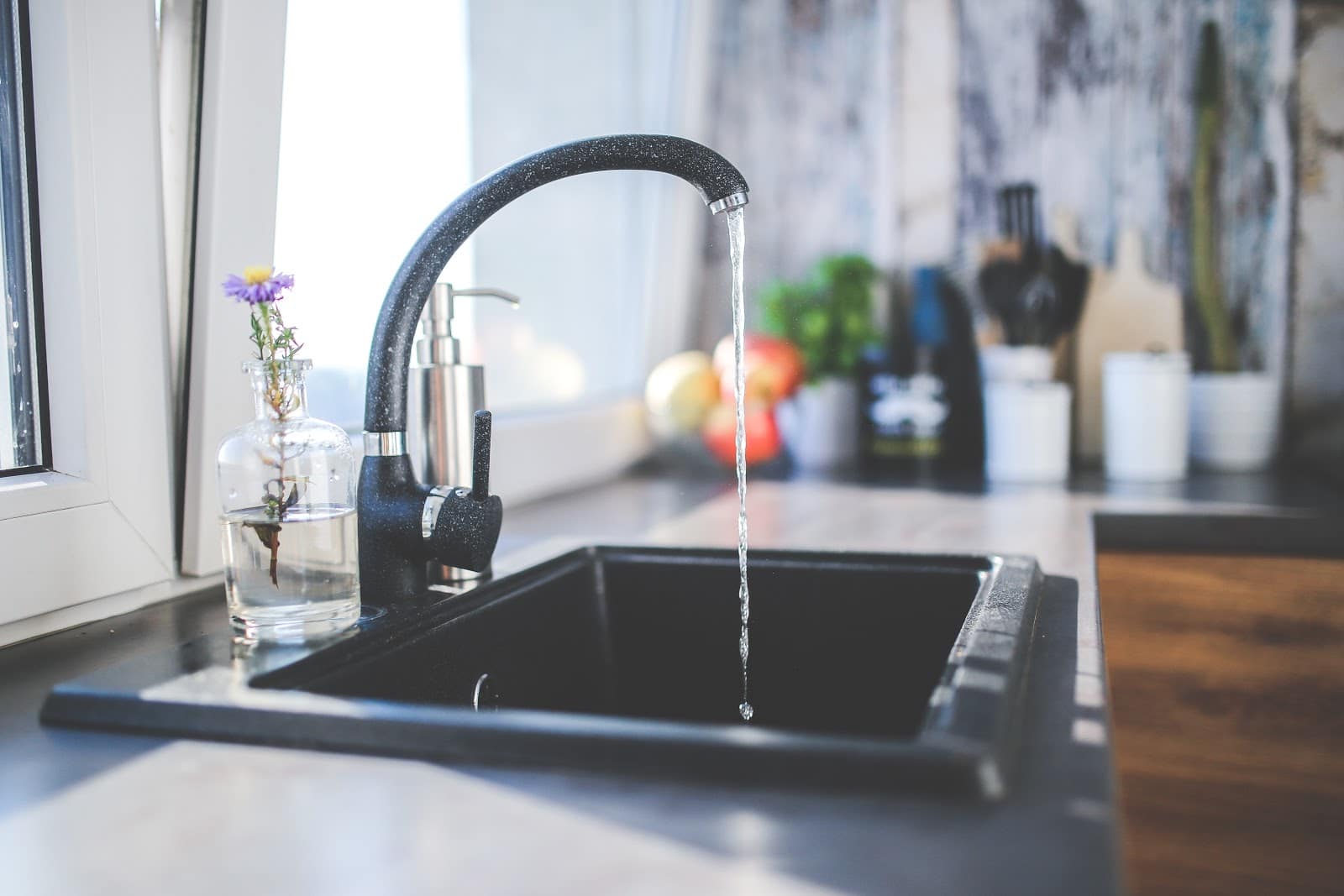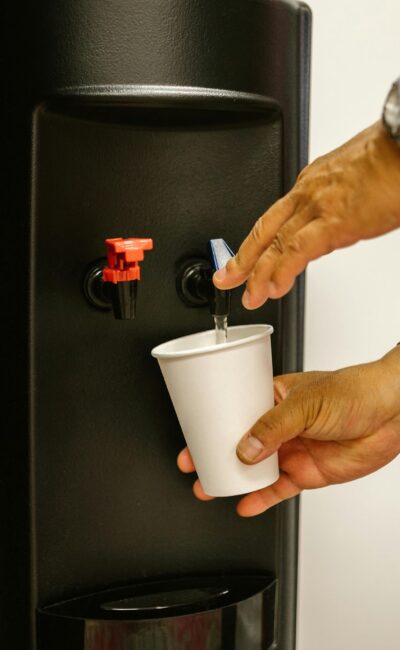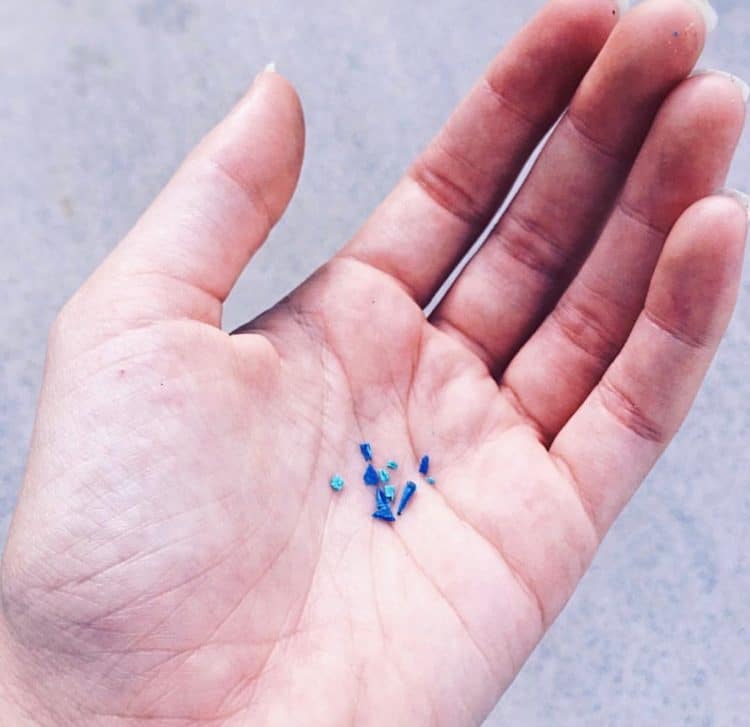As a pandemic, the coronavirus crisis has taken hold of the world in more ways than one. In the U.S., with most states social distancing under stay-at-home orders, there has been less traffic on the street, a slowdown in factory work, and far fewer flights per day. This has led to fewer gas emissions and cleaner air quality, at least temporarily.
According to data issued by the U.S. Energy Department, greenhouse gas emissions are forecast to decline by 7.5 percent in 2020 due to coronavirus lockdowns. This reduction and the coronavirus impact on water has been reported around the world, perhaps most visibly through photos for the clear canals in Venice, thanks to the emptiness of boats and people polluting the waters. Less pollution and less waste overall means less toxins that end up in our water sources.
Cleaner water is beneficial for human consumption in multiple ways not just through the water that makes it to the tap. It also affects the quality of the food cycle that comes from the ocean and water used for farming. In a great cyclical effect, the fewer toxins and contaminants in the air, also positively benefits the water as well as contributes to our health.
Additionally, with a majority of Americans working from home in the current conditions with the virus, there is more reliance on what’s available at home versus using supplies available in most office settings, such as single-use cups or plastic bottles, printed paper, and other type of waste, which may or may not get recycled on a daily basis.
Another way the coronavirus outbreak has had a positive impact on the environment is that it’s connected people directly with farmers and other food suppliers to get fresh produce and essential groceries. It’s requiring people to be more self-aware of the food they need and reduce how much is wasted as everyone limits the number of times they leave the house to stock up on groceries.
Finally, although there has been a surge in take-out food and delivery service, many states already had implemented the ban on single-use plastic bags and plastic straws, which means restaurants were equipped with recyclable containers prior to the pandemic. Even as a few states are temporarily reversing the plastic bag ban for fear of dangers posed by reusable bags made of fabric, people are still using them less because there are fewer visits to the grocery store, in general.
As people are beginning to learn the new ways of conducting business and gathering what they need on a day-to-day basis, it’s becoming clear what’s essential and what has previously been only conveniences, many of which are unnecessary.
One specific area where this is prevalent is the convenience of bottled water. Single-use plastic bottles fill up company meeting areas and break rooms, they’re easy to grab-and-go when filling up at the gas station, and are an impulse purchase when leaving the gym. Now that all of those places are no longer working at their full capacity, if at all, people are seeing the convenience, cost savings, and positive environmental impact of getting daily hydration in a more sustainable way.
Continual Contribution to the Environment Post-Coronavirus
One of the questions that have come up during this pandemic with regards to the environment is, how can we sustain this slowdown and use it to our benefit? How can we continue resourcefulness best practices that we’ve been essentially forced into following in the future? Limiting our carbon footprint is not a new concept and yet, for many, there’s been a new understanding of how powerful it is when we individually contribute to the environment for the good of all.
One of the most significant ways to achieve this is to eliminate single-use plastic water bottles. The increase of plastic waste has spiked significantly over the past decade with only a small percentage recycled. The rest sits in landfills, taking centuries to break down naturally or more commonly, it spills into the ocean, disrupting the ecosystem. Now with self-isolation keeping everyone home, plastic waste has slowed.
For example, a few years ago it was reported that Coachella generated 107 tons of solid waste per day, much of it largely plastic, with only 20 percent of it recycled. Outdoor music festivals like this have been one of the greatest contributors to plastic waste and have since tried to reduce their carbon footprint by providing alternative options that are more favorable to the planet. Now that these concerts and other similar events that draw thousands of people are canceled or indefinitely postponed, plastic waste from these venues is non-existent.
Hopefully, thinking about the coronavirus impact on water solutions for the future has caused event providers and other organizations that have shut down temporarily, such as gyms, hotels, and schools to rethink their sustainability strategies and provide better plans once things begin to resume. Although the sense of “normal” won’t be the same and there’s no timeline that tells us that the coronavirus outbreak will be behind us completely any time soon, if at all, this time can be best used to talk about what things will look like when the stay-at-home orders are lifted and people begin to navigating new waters.
FloWater Provides Purified Water Focused on Sustainability
FloWater provides a sustainable drinking water solution with a mission to eliminate the need for single-use plastic water bottles, reduce the million of CO2 byproduct waste that’s needed to create and transport bottled water, and remove toxins from natural water sources to keep people hydrated and in better health. With a mix of design innovation, technology, and resourcefulness, FloWater is the only refill station that transforms ordinary tap water into the cleanest, freshest, best-tasting water available.
The FloWater Refill Station fits any size of water container and can serve a large capacity of people. It dispenses water within seconds, while constantly refilling the tanks with purified water on-demand. It promotes reusable water bottles and keeps the line moving so there’s no crowding, which is important in a virus-stricken world. The station holds seven gallons of purified water at all times and is automatically refilled each time water is dispensed.
As a result of the reduced demand for plastic water bottles, the level of CO2 emissions also would reduce rapidly. The energy and waste it takes to create, package, and transport plastic does not leave behind a healthy carbon footprint. It continues to cause air pollution, all by creating a product that can be delivered in a better, healthier way. FloWater eliminates the need for plastic at every phase and also uses tap water, a resource that’s readily available, and purifies it to make it wholly drinkable by all.
Think of how much plastic waste would be reduced if FloWater replaced plastic water bottles at live events, on school campuses, and in gyms, as well as other businesses where large crowds of people are in constant need of a clean, refreshing water source.
Environmental and Health Benefits of Cleaner, Fresher Water
There are general recommendations set forth with regards to tap water regulations, but municipalities are in charge with enforcing these on a case-by-case basis. Not every water resource has the same quality and many tap water systems are so poor, the water is deemed unsafe and undrinkable by its residents. FloWater uses the tap water that’s available and transforms it into purified water that removes all contaminants and impurities typically found in tap water.
Toxins like lead, pesticides, bacteria, viruses, and other chemicals and heavy metals are found in tap water in varying levels. They either derive from the original source or are leached through aging water pipes that have not been replaced or updated for decades. As this makes its way to your tap, the water that ends up in your glass is filled with particles you don’t want to consume.
Rather than relying on beverages filled with sugar, calories, and other additives or avoid drinking water altogether, which leads to dehydration, FloWater filters out these contaminants from tap water and adds back in the good by way of essential minerals and electrolytes. It’s safe drinking water that tastes delicious and is a vital part of maintaining good health.
Each of the seven filters part of FloWater’s unique purification process helps give the water its great taste and unsurpassed quality. FloWater carries several benefits for industries to consider as they think about how their business models will need to change in a post-coronavirus world. While many have already started to slowly implement changes to improve sanitation and reduce the environmental impact, others have maintained outdated systems that simply aren’t going to work going forward.
The FloWater Refill Station is self-sanitizing through the addition of activated oxygen. Plus, there is less dirt, grime, and germ buildup than with standard water coolers and drinking fountains. The one-touch fill button and recessed dispense nozzle minimizes contact and lets people fill up fast. This type of innovation is what will be valued and largely expected at airports, hotels, and other areas where people want access to clean water on-the-go.
This pandemic has caused us to slow down and given us a look into how much our day-to-day choices can positively contribute to the environment and ultimately, our health.
Sources:
- https://www.bloomberg.com/news/articles/2020-04-07/u-s-slashes-carbon-emissions-forecast-as-people-stay-home;
- https://fortune.com/2020/04/08/coronavirus-reverse-bans-single-use-plastic/;
- https://www.epa.gov/facts-and-figures-about-materials-waste-and-recycling/plastics-material-specific-data; https://www.desertsun.com/story/life/entertainment/music/coachella/2017/04/21/coachella-generates-107-tons-solid-waste-each-day-20-gets-recycled/305682001/;




